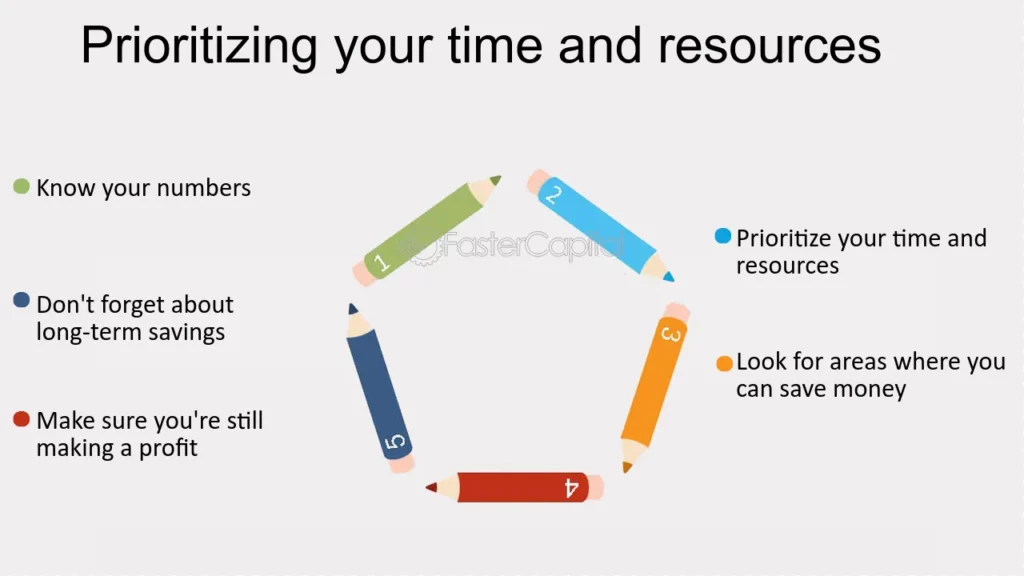Toxic workplaces do not just ruin work life; they seep into every aspect of your life, including your mental health, relationships, and even your physical health. While some red flags are easy to spot, like verbal abuse or unethical practices, some are more subtle, like incessant micromanagement, lack of appreciation & recognition, or unreasonable workload. These seem harmless at first, but if unresolved over time, they can contribute to workplace burnout, anxiety, or a general lack of motivation even for the most passionate professionals.
When understood early, workplace red flags allow you to make informed decisions for your career and overall well-being. No job is worth losing your mental health or your dignity. If you constantly feel drained, worthless, unseen, or unsafe in your work environment, it may be time to re-evaluate if it is in your best interest to stay.
Knowing these red flags can enable you to take charge of your professional life and can help you seek an environment that ensures growth, respect, and balance.
Table of Contents
Impact of a Toxic Workplace
There are a few different ways toxic workplaces affect everyone. By learning how to spot the signs of toxicity early, you can mitigate the damage it causes and regain some control over your well-being.
The Mental Impact
Toxic workplaces create chronic stress, but it’s also important to know that chronic stress can trigger or make existing mental health realities worse – problems like anxiety and depression. Employees who are in toxic, hostile, or highly pressurized workplaces benefit from knowing that they are NOT alone if they feel chronically stressed, nauseous, “frozen,” live in fear of “when it will happen,” or suffer a loss of control to the point of great dread prior to going to work.
Many times, chronic stress escalates into burnout, which is likely to put you surgically off just about everything in your work as well as seriously undermine your personal life, which is clearly a really destructive thing! Ultimately, the best thing in these cases is preventative action; without it, you find yourself stuck in a cycle of declining mental health and declining productivity, and you’ll get further behind meeting demands of the workplace.
Physical Health Consequences
The stress caused by a toxic workplace doesn’t end at harming our mental health. The body is impacted as well. Studies have linked chronic stress with high blood pressure, heart disease, and decreased immune system functioning that makes the employee more susceptible to illness. Once the body revs into constant fight-or-flight mode because of the toxic workplace, it may create digestive issues, migraines, and increase a reliance on drugs (alcohol, caffeine) or other substances to cope.
Sleep is the bedrock of health and wellness, yet toxic workplaces often deprive employees of good, restful sleep. When stress and negativity spill into the body and brain at night, employees are forced to mentally ruminate on work events, conflicts, critiques, or toxic people long after work hours are over.
These thoughts can prevent employees from unwinding mentally, causing poor sleep. If chronic sleep deprivation continues, it can ultimately lead to serious health risks related to obesity, diabetes, and heart disease. Even worse, prolonged sleep deprivation is linked to shorter life spans.
Strained Personal Relationships
Being subjected to workplace harassment may also affect you emotionally, which can spill over into personal relationships, creating irritability, a sense of withdrawal, and impairment in healthy relationships with family and friends alike. If your thoughts are dominated by work-related stress, it can be difficult to enjoy the personal moments in your life, and this takes a toll on your overall quality of life.
The inability to escape the negative aspects of your workplace can take away your feelings of happiness, contentment, and emotional stability. It is imperative that you notice these red flags, acknowledge the stressors in your life, and take action before they start affecting your mental health on an indefinite basis.
Red Flags: It’s Time to Go
Take a look at the following common signs of malpractice and reevaluate your work situation to ensure your safety and well-being.
Constant Monitoring
There is a line between directing someone and controlling someone. If your boss is watching every step you take, nitpicking on your best work, or questioning your decisions, then they are micromanagers. Even the most competent employee can feel inadequate when they are being scrutinized in this manner and oftentimes it can lead to even more anxiety and self-doubt.

Some staff areas take it even further with cameras, software to listen to conversations, tracking behavior, or using software to gain all sorts of information to aim against you later. This continuous surveillance causes fear in some work environments and creates a distrustful and hostile work dynamic where the employee feels like he/she is being watched, followed, and judged at all times.
Unsupportive Employer
Feeling unappreciated and unsupported at work can sap you of your motivation and self-worth. A healthy workplace recognizes employees as human beings, beyond just their work. It recognizes their sense of well-being, their work/life balance, and their contributions.
However, if your employer does not meet your need for rest, fails to acknowledge your hard work, or cares so little about you that they feel like you could be easily replaced, this is a big red flag.
Imagine every day you get the same sense of failure as if you have given it your best and there is no recognition, no feedback, and no way to express concerns. Over time, this lack of support can lead to resentment and burnout. Work should be a place where you can grow, work collaboratively, and be recognized; and if you have an employer that can’t provide that, maybe it is time to find one that can.
No Adaptability
In the fast-paced world we live in today, needing adaptability is a necessity. Whether it’s working from home when the moment strikes, taking sick leave without guilt, or pursuing a higher education while in your job, a non-adaptable workplace can quickly become suffocating. An employee that does not recognize the importance of an employee’s adaptability shows that the employee is not regarded and cared for.
No Employee Growth
A fulfilling job is a job where there are opportunities to learn and develop new skills, challenges to overcome, and advancement opportunities. If your workplace does not offer you professional growth opportunities, whether it is with a promotion, mentorships, or new skill development, then you might find yourself settling into a routine with no opportunity for professional growth. Lack of growth or opportunities for development will quickly sap your motivation, leaving you angry, bored, and questioning your long-term career options.
Another common issue is when an employer puts their employees in a position in which their career goals do not align with their role expectations. When you were hired for one role, but you are constantly doing useless work because a manager is not trained in the tasks and responsibilities you were hired for, you are being deprived of your professional growth.
Unfair Pay and Exploitation
Your paycheck is a reflection of the time, skills, and effort your employer thinks you’re worth. You are being undervalued if you receive your paychecks late, your responsibilities have increased without additional pay, or your employer uses excuses not to provide you with an annual raise.
Some employers use unrefined excuses to restrain paying annual pay increments, and some employers expect employees to work overtime or extra hours but aren’t qualitatively compensating their employees but have generalized a culture of exploitation. In especially heinous cases, an employer might not compensate you for the hours you have worked but will either reprimand or fine you for being late – even if it’s just one minute – and will be doing so in extreme worst-case scenarios.
If it were a deadline, you would have no issue working late occasionally; however, if you regularly find yourself in a situation where you are pressured to do unpaid work, it’s a sign of a toxic workplace. Be aware of your value, what you’re worth, and advocate for yourself. If your employer believes that you should be paid below your actual value and does not recognize the value you offer, consider working somewhere else that does recognize it.
A Culture of Intimidation
All workplaces should cultivate a professional, safe, and respectful environment. However, some workplaces fall under an umbrella of fear and manipulation. If your manager or coworkers use intimidation tactics, whether verbal abuse, blame games, or even threats, then you are dealing with a serious red flag.
Some managers use public humiliation to break employees down and shatter their confidence and assert control over them. Gaslighting is also a form of intimidation where an individual can manipulate and distort facts, even their own facts, to make you doubt your own judgment. And even sometimes intimidation can be physical. This can include intrusive postures or invading personal space to show superiority, assert control, and accept it as part of their position.
Having to interact with an individual or workplace that encourages such toxic behaviors can undermine your self-esteem and generate physical and emotional stress. This makes going to work a daily anxious ordeal and cultivates a hostile environment. If intimidation is being used as a management or relationship strategy, you will know that you are working in a toxic workplace. No job is worth sacrificing your self-worth or dignity.
Toxic Employees
A company’s culture is defined by its people, and when gossip, aggressiveness, and bullying are normal, it is a bad culture. Whether it’s colleagues speculating about personal affairs or a boss that relishes wearing the label “bad boss.” The fact that there is hardly any communication between departments means there is no such thing as adding value within a toxic culture. We know that gossiping can severely drain energy.

If you dread the thought of going to work each morning, feel like you always have to watch your back, or you’re surrounded by relentless negativity in your work environment. Now is a good time to simply ask yourself, is it really worth it?
Unethical Practices and Legal Violations
A work environment that has no regard for ethical boundaries or the law is probably the biggest red flag out there. If you experience fraud, discrimination, unsafe work practices, or dishonesty with clients regularly at work, you are at real risk of suffering a moral weight on your conscience.
Employees clocking extended periods in these environments tend to report heightened stress, anxiety, and even physical symptoms (like sleeping issues or issues with digestion). The real threat lies in getting into such an environment for too long and unintentionally doing something unethical yourself. Either as an active player or as a bystander.
No paycheck is worth compromising your morals, professional reputation, or legal standing. If you are being asked to play ball in a way that doesn’t sit right with you, that is your sign to look for another job before you find yourself in a position you regret for years to come.
An Unsafe Work Environment
Safety should never be compromised in a workplace. If you find yourself in an environment where physical safety is treated as an option—such as a lack of proper equipment, exposure to hazardous conditions, or pressure to cut corners on safety protocols—you are at serious risk. Injuries, chronic issues, and even life-threatening accidents can occur due to an employer’s negligence.
If your workplace ignores safety complaints or makes you feel unsafe in any way, do not wait for things to get any worse. Look after yourself and find a healthier environment to work in.
High Employee Turnover
If employees are constantly coming and going, it’s a glaring warning sign that something is wrong. A high turnover rate usually indicates poor management, a toxic work environment, or dissatisfaction among employees. When people frequently leave a company, it disrupts workflows, increases the workload for remaining employees, and creates an unstable environment.
When the Job Takes Over Your Life
Work should not consume your entire existence. If your job has started to creep into your personal time, bombarding you with emails after hours, expecting you to be available on your days off, or making you feel guilty for taking a break, it’s a problem.

As mentioned earlier, chronic stress from overwork can result in insomnia, anxiety, and even serious health issues like high blood pressure or digestive problems. Your job might leave you feeling drained and disconnected from your personal life and loved ones.
Sometimes, the issue isn’t just the job but a growing sense of disengagement. If you feel uninspired, unmotivated, or completely indifferent to your work, it might be time for a change. A short break, like a vacation, might help, but if the feeling persists, it may be time to seek a role that challenges and excites you again.
You Matter!
Your workplace should challenge and inspire you, not drain or diminish you. If you find yourself trapped in a toxic work environment, remember that you have options. No paycheck is worth prolonged stress, anxiety, or unhappiness. The first step is recognizing the signs; the next is taking action, whether that means setting boundaries, speaking up, or moving on to a healthier workplace. Your well-being matters, and finding a supportive work environment is key to both personal and professional success.
Visit EvolveDash today for fresh insights and practical tips on how to address workplace issues to grow both in your professional and personal lives!
FAQs
What are the biggest signs of a toxic workplace?
Some major red flags include constant micromanagement, lack of recognition, high employee turnover, unethical practices, and an overwhelming workload without proper support.
How does a toxic work environment affect mental health?
A toxic workplace can lead to chronic stress, anxiety, depression, burnout, and even physical symptoms like headaches, insomnia, and digestive issues.
What should I do if I experience workplace toxicity?
Start by documenting incidents, setting boundaries, and seeking support from HR or trusted colleagues. If things don’t improve, consider looking for a healthier workplace.
Is it normal to feel guilty about leaving a toxic job?
Yes, many people feel guilty or hesitant, especially if they have strong work ethics. However, prioritizing your mental health and career growth is always the right choice.
Can a toxic workplace be fixed, or should I just leave?
If leadership is willing to make changes and address concerns, improvement is possible. However, if the toxicity is deeply rooted, leaving may be the best option for your well-being.



















